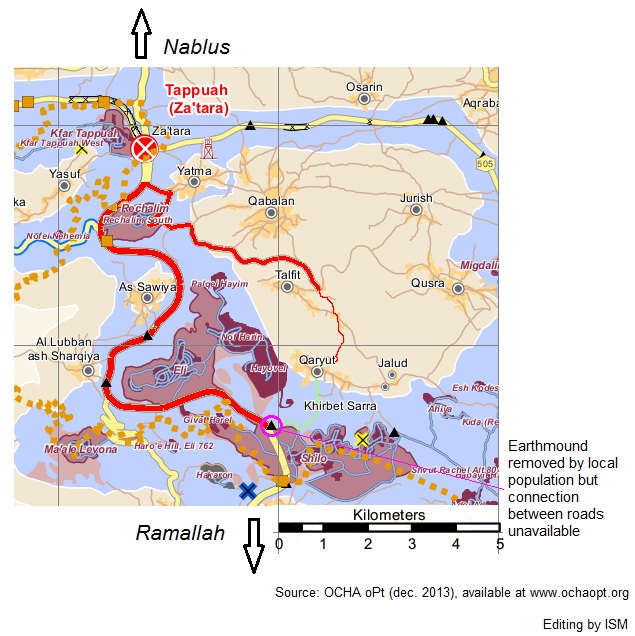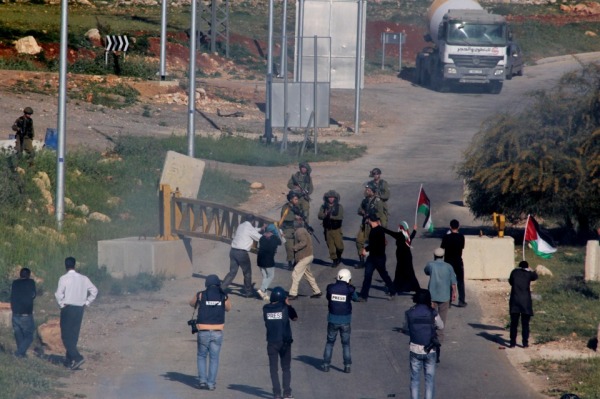-
Village of Qaryut without reliable access to vital road
15th April 2014 | International Solidarity Movement, Nablus Team| Qaryut, Occupied Palestine The village of Qaryut, located almost halfway between Nablus and Ramallah, has been waiting for the last year to have a reliable and secure connection to Road 60. This road is essential to connect the village with the city of Ramallah, where most […]
-
Nabi Saleh successfully end three day siege of their village with peaceful protest
15th April 2014 | International Solidarity Movement, Ramallah Team | Nabi Saleh, Occupied Palestine Yesterday, The Palestinian Popular Resistance Committee of Nabi Saleh called for a demonstration at 3pm against a siege enforced on their village by Israeli forces. The demonstration was an overwhelming success with the re-opening of the checkpoint and a withdrawal of the additional forces […]
Action Alert An Nabi Saleh Apartheid Wall Arrests BDS Bethlehem Bil'in Cast Lead Demonstration Denial of Entry Ethnic Cleansing Farmers Gaza Global Actions Hebron House Demolition International law Israeli Army Jerusalem Live Ammunition Nablus Ni'lin Prisoner Ramallah Rubber-coated steel bullets Settlement Settlers Settler violence Tear-Gas Canister Video



